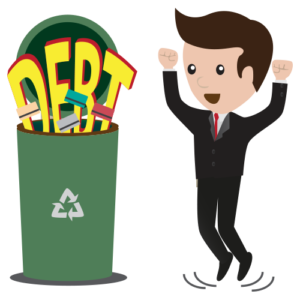Taking Charge Of Your Debt – What Are Your Options?
 If you’re struggling with debt, you could soon find yourself caught in a web that is difficult to get out of. Debt isn’t something that will just go away, so you’ll need to put a plan in place to get yourself out of it. The sooner you face up to it, the sooner you can be back in the black and ensure better financial security for you and your family. Want to know what your options are? Read some of the ways you can take charge of your debt below.
If you’re struggling with debt, you could soon find yourself caught in a web that is difficult to get out of. Debt isn’t something that will just go away, so you’ll need to put a plan in place to get yourself out of it. The sooner you face up to it, the sooner you can be back in the black and ensure better financial security for you and your family. Want to know what your options are? Read some of the ways you can take charge of your debt below.
Pay it off
Paying off your debt is something that you’ll have to do, regardless of what option you choose. If you’re able to put a plan in place to budget and make savings, there’s no reason why you shouldn’t be able to pay off your debt.
Rank your debts in order from the highest to lowest interest rate
Starting with the debt that incurs the highest interest will help you to pay your debts off quicker, as you’ll be paying off less interest overall. Work out how much you can set aside each month to pay off your debts, allocating more to the account at the top of your list first.
Set yourself a budget
Sticking to a budget is one of the easiest ways you’ll be able to clear your debt. By giving yourself a set amount for your monthly expenses, you can set aside a decent sum to put towards your debts. If you under spend on your budget, use the extra to pay off even more and help reduce your debts quicker.
Close paid-off accounts
Once you’ve paid off your accounts, close them. Having too many open credit accounts with high available balances will reflect poorly on your credit score, and could scupper your chances of being approved for a loan or mortgage. Keep one or two open and keep their balances low – you’ll need to use some credit to rebuild your credit score.
Consolidate
If you want to tackle your debt by avoiding high-interest rates and making your debts easier to manage, you might want to take out a consolidation loan instead. You should only do this if you can manage the monthly payments, and are willing to close the accounts immediately after paying them off.
Do your research first
Before deciding whether or not to take out a consolidation loan, you should do your research as to whether it will actually save you money in the long term. Compare the interest rate versus what you pay now and see if it could be a better deal for you. If you often miss payments because of carelessness or you find it difficult to keep track of multiple payments, this could be a good option to help you stay on track and focus on one monthly payment instead.
Choose the right provider
If your credit rating is poor because of your current financial habits, providers like ReallyBadCreditOffers.com could help you to get a good rate on a consolidation loan. With a good rate behind you and end date in sight, you could be much happier and less-stress about money. Read all of the terms carefully and see if there’s a way you can up your repayments without a penalty should your financial situation improve.
Avoid taking out more credit
A consolidation loan is a great way to make your debts easier to manage, but you should resist the temptation of taking on more debt. Stop spending on credit cards (cut them up if you have to) and don’t make any further financial agreements until you’ve paid off what you owe.
Set up a debt management plan
Alternatively, if you’re really struggling to handle your debt – a debt management plan could be the right option for you. Reading up on how a debt management plan works can help you decide if this is the right option for you.
Can you stick to it?
A debt management plan is great if you can stick to it. If you fail to make payments – you could lose the decreased interest rates or goodwill that has been given to you by your creditors.
Will you need to take out credit in the future?
A debt management plan is only recommended if you don’t intend on taking out more credit soon. If you’re planning to open a new credit card, take out a mortgage or a car loan, you may need to think twice before starting a debt management plan. The rationale behind a plan is to help you take care of your debt, not free you up to add more.
Consider all of the options above to work out which is the most suitable for you. Stop struggling with debt today and work towards a more stable financial future.
















